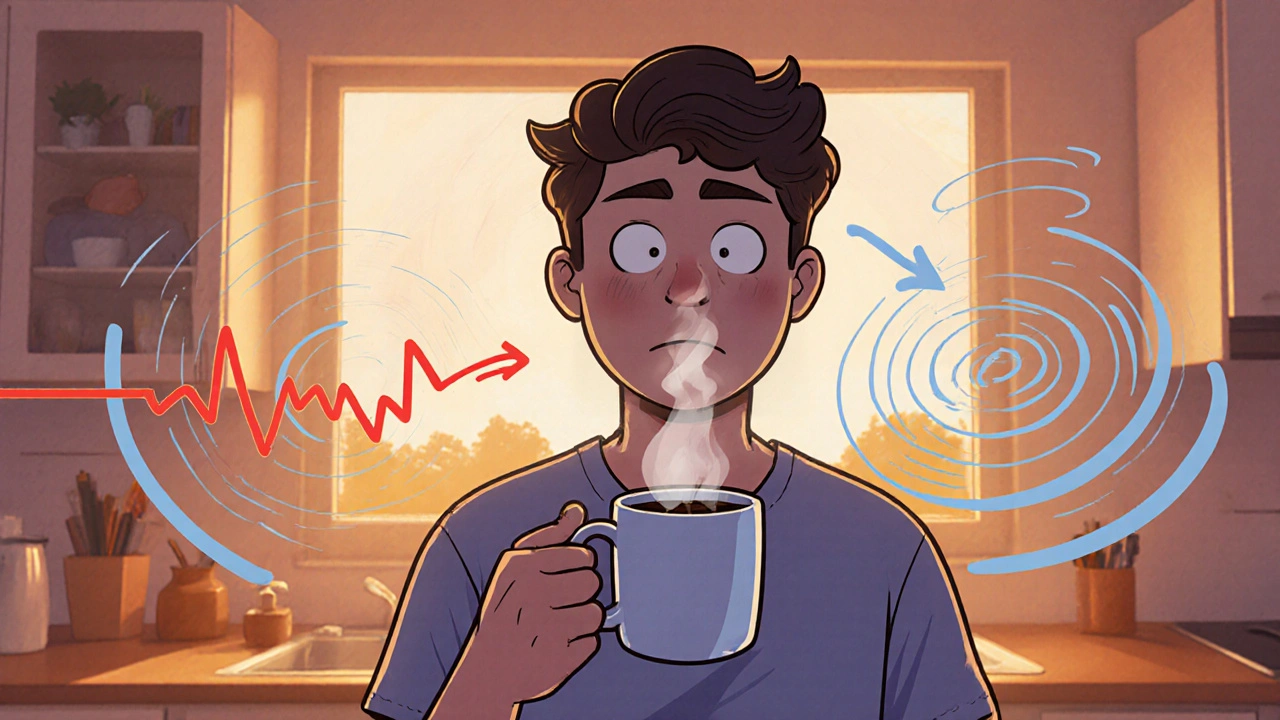Caffeine Side Effects: What You Need to Know Before Your Next Cup
When you drink coffee, energy drinks, or even tea, you’re consuming caffeine, a central nervous system stimulant found in over 60 plants and used daily by billions of people worldwide. Also known as 1,3,7-trimethylxanthine, it’s not just a pick-me-up—it’s a powerful drug that affects your brain, heart, and sleep cycle. Most people think caffeine is harmless because it’s legal and widely available, but that doesn’t mean it’s safe at any dose. Even a single cup can trigger headaches, anxiety, or a racing heart in sensitive people.
Caffeine withdrawal, a real physical reaction that happens when regular users cut back or stop. Also known as caffeine crash, it can cause fatigue, irritability, and severe headaches within 12 to 24 hours of your last dose. If you rely on caffeine to get through the day, your body builds up a tolerance—you need more to feel the same effect. That’s not just habit, it’s dependence. And when you try to quit, your brain struggles to adjust, which is why so many people go back to coffee after just a day or two. Caffeine overdose, a rare but dangerous condition that can happen with excessive intake, especially from pills, powders, or energy shots. Also known as caffeine toxicity, it leads to vomiting, rapid heartbeat, seizures, and in extreme cases, death. The FDA says 400 milligrams a day is safe for most adults—that’s about four cups of coffee. But if you’re mixing energy drinks, pre-workout powders, and soda, you could easily hit 800 or more without realizing it. And then there’s caffeine tolerance, the body’s adaptation to regular use that reduces the stimulant effect over time. Also known as desensitization, it’s why your morning coffee doesn’t wake you up like it used to. You’re not getting less sleep—you’re just needing more caffeine to feel the same buzz.
These aren’t abstract medical terms—they’re real experiences people have every day. You might feel jittery after lunch, have trouble sleeping even if you stop at 3 p.m., or notice your heart pounding when you drink too much. That’s not "just how you are." That’s your body reacting to a substance that changes your brain chemistry. And if you’re taking other medications—like antidepressants, asthma inhalers, or heart drugs—caffeine can interact with them in ways you didn’t expect. It’s not just about coffee anymore. It’s about how much you’re really consuming, how often, and what else is in your system.
Below, you’ll find real, practical guides that break down how caffeine affects different people, what to do if you’re experiencing side effects, and how to cut back without crashing. No fluff. No myths. Just what works.

Caffeine and Dizziness: Should You Cut Back?
Explore how caffeine can trigger dizziness, who’s most at risk, and practical steps to reduce intake while staying alert.
October 17 2025